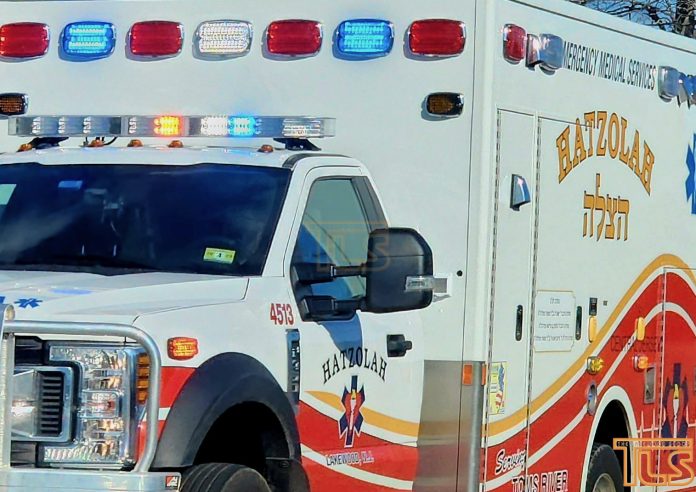When people have heart attacks in movies, they usually clutch their chests dramatically, break out in a cold sweat and drop to the floor. In real life, some people experience heart attacks this way, but there are many other less obvious symptoms which may indicate that someone is having a heart attack. It’s important to know all of the signs – including subtler ones – to ensure that you get the emergency care that you need.
“Many people who have heart attacks don’t have classic symptoms, so they may think that they’re experiencing indigestion, fatigue or muscle soreness from physical exertion,” says cardiologist Renato Apolito, M.D. “Women and older adults in particular may not exhibit the typical signs that many people would immediately recognize.”
Common Signs of a Heart Attack
These are the most commonly expected symptoms of heart attack. If you suddenly experience these symptoms, call 911 or get to your nearest emergency room immediately:
-
Chest pain, pressure or discomfort that lasts for several minutes or disappears, then returns
-
Pain or discomfort that affects either or both arms
-
Back, neck or jaw discomfort
-
Stomach pain or discomfort
-
Feelings of indigestion
-
Shortness of breath
-
Sweating
-
Nausea
-
Heart palpitations
-
Feeling lightheaded
-
A feeling of impending doom
Heart Attacks in Women
A portion of women who have heart attacks experience classic symptoms, but many other women don’t. In fact, some women don’t notice any type of chest pain or discomfort, which keeps them from recognizing that they need emergency care. Women may be more likely to experience:
-
Back, neck or shoulder pain
-
Jaw pain
-
Shortness of breath
-
Heartburn-like symptoms
-
Nausea and/or vomiting
-
Pain in one or both arms
-
Dizziness or fainting
-
Feeling fatigued
-
Sweating
If you notice any or all of these symptoms, call 911 and seek emergency medical care immediately, even if you aren’t experiencing chest pain.
Heart Attacks in Older Adults
Many older adults may not experience chest pain during heart attacks, particularly those with diabetes. Older people may have “silent” heart attacks, or they may notice mild symptoms, including:
-
Feeling fatigued or tired
-
Shortness of breath
Sometimes, older adults experience some of the milder heart-attack symptoms that women experience, like heartburn, nausea or sweating. If you’re concerned that you could be having a heart attack because of these milder symptoms, call 9-1-1 to get checked out. Even if you’re only having trouble catching your breath – especially if you haven’t done anything to physically exert yourself – it’s worthwhile to investigate.
Heart Attacks When There’s a Language Barrier
Research has found that individuals who don’t speak the local language are less likely to:
-
Know the signs and symptoms of heart attack
-
Call 9-1-1 when they may be having a heart attack
-
See doctors regularly, which may help to lower the risk of heart attack
Others who may be unable to communicate efficiently could experience the same problems. Additionally, adults who are nonverbal may have difficulty expressing that they’re having a heart attack and need medical attention. If your loved one has communication challenges and doesn’t feel well, ask about subtle symptoms. You may help them get the care that they need.
When to Call 9-1-1
You may feel hesitant to call 9-1-1 when you aren’t certain that you’re having a heart attack. You might try the wait-and-see approach instead, or you might consider going to the hospital by car. If you’re truly having a heart attack, the quickest way to get help is calling 9-1-1. You’ll receive care as soon as EMTs arrive, and people who arrive by ambulance to the emergency department for heart attacks are seen sooner than people who arrive by car. Damage to the heart muscle may occur within the first 90 minutes after a heart attack, so getting prompt care is essential, even if you aren’t entirely certain that what you’re experiencing is a heart attack.
—————————-
Renato Apolito, M.D., is the medical director of cardiac catheterization at Hackensack Meridian Jersey Shore University Medical Center. He has expertise and specialized focus in the area of general and preventive cardiology. Dr. Apolito performs interventional cardiology procedures, including coronary peripheral vascular intervention and Transcatheter Aortic Valve Replacement (TAVR). For more information about Hackensack Meridian Health’s cardiovascular services, visit www.HMHHasHeart.com. For a list of upcoming heart health and cardiovascular screening events, click here. To make an appointment with Dr. Apolito, call 848-HMH-WELL (848-464-9355.)

